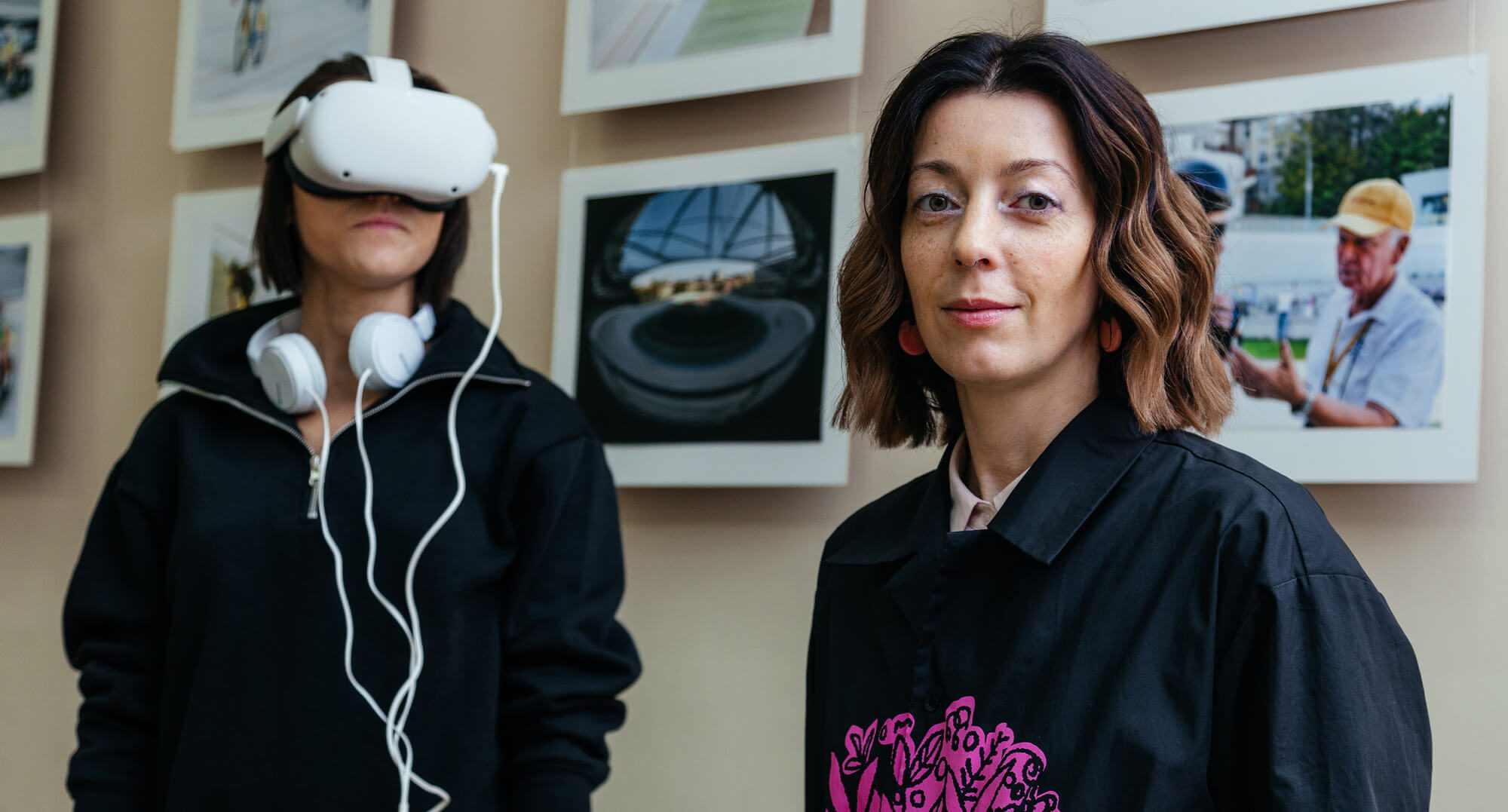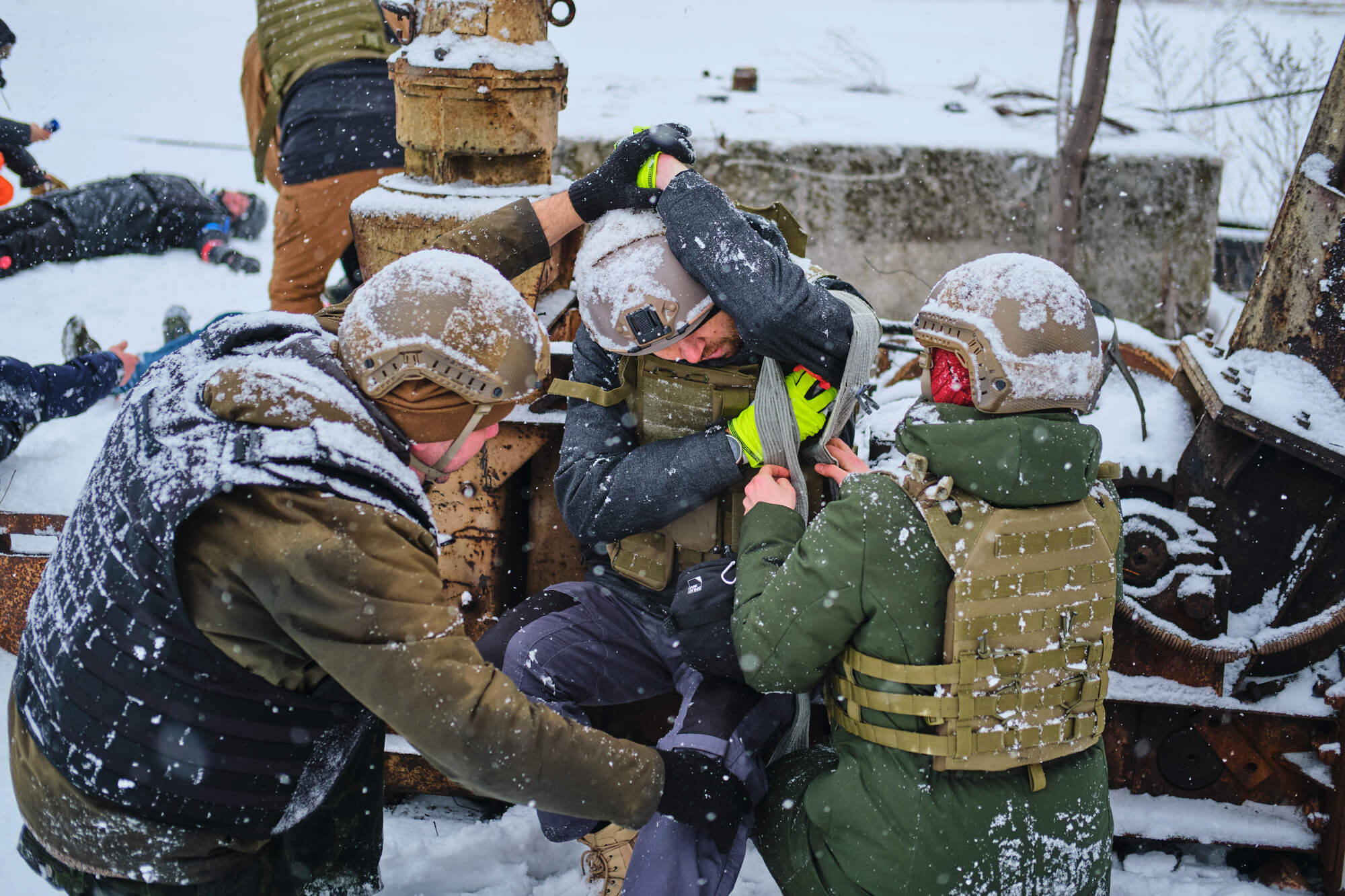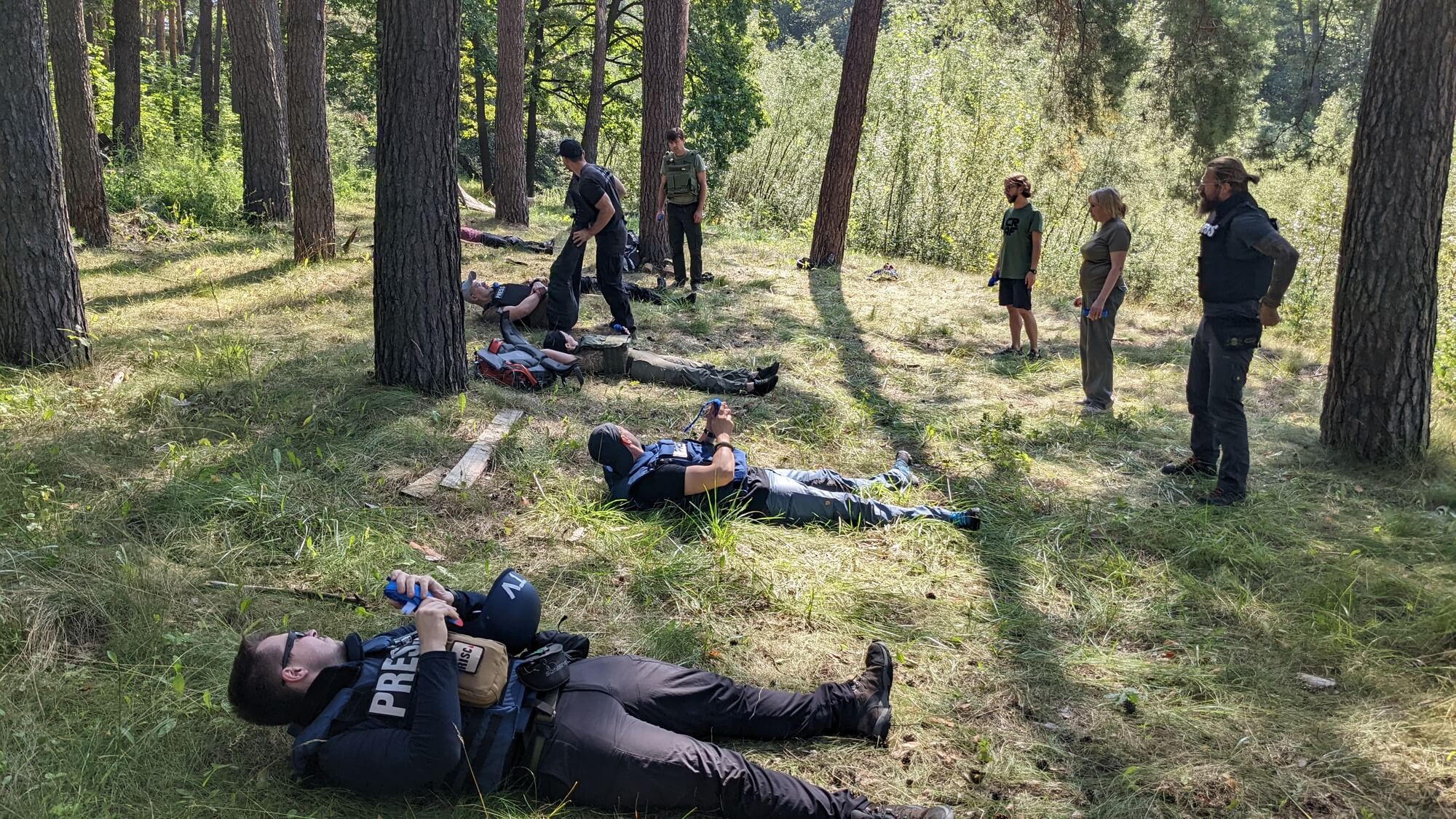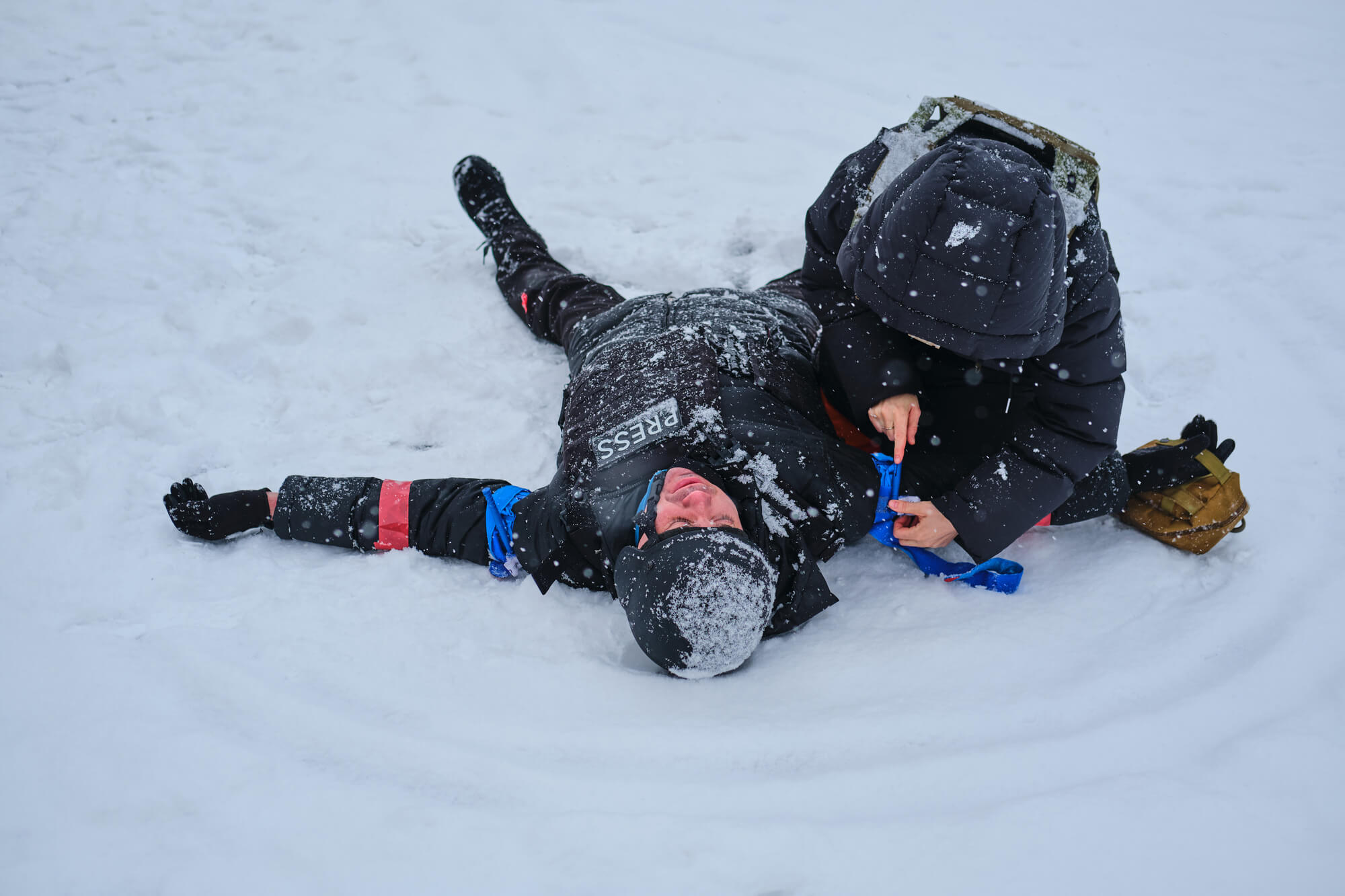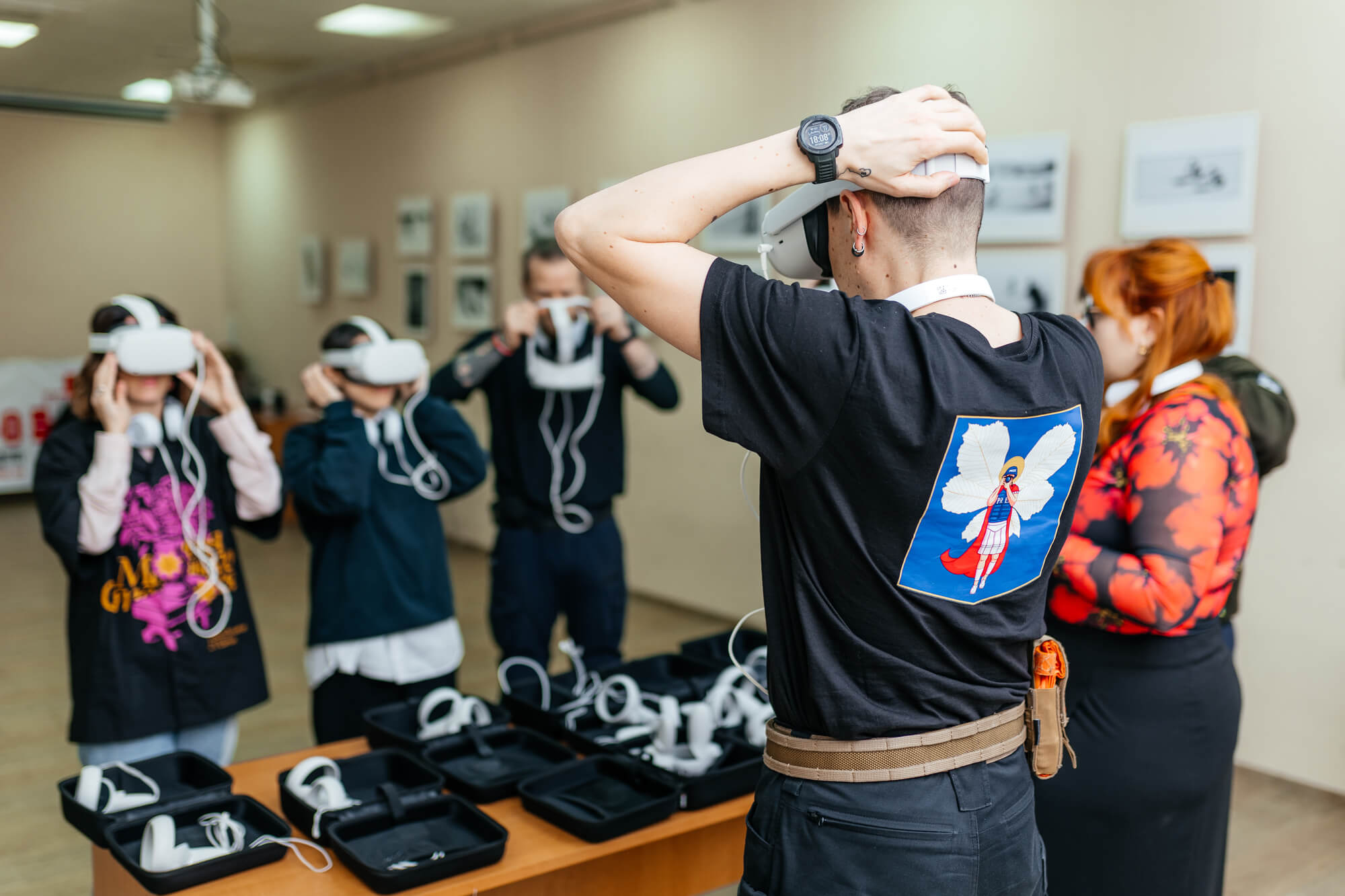The 2402 Foundation was founded in the first days of Russia’s full-scale invasion of Ukraine. Since then, almost 1000 recipients have received assistance. Among them, more than 20 editorial offices of Ukrainian media have been provided with bulletproof vests and helmets; more than a hundred freelance journalists, fixers, and local producers have received protective and technical equipment for working in dangerous conditions.
Zaborona spoke with the foundation’s co-founder Kateryna Serhatskova and found out how the initiative by journalists for journalists has taken on a different scale.
Information helps to survive
Tell us how it all started. Someone was preparing for the full scale in advance, and someone started acting when it all started. Someone volunteered, someone became a medic, someone worked on evacuation and refugees, and someone raised money for the army. Why did you choose a direction that is completely incomprehensible to the general public along with helping these people?
I don’t think that helping journalists is a direction that is not widely understood. Journalism is usually called the fourth estate. But during the full-scale invasion, this profession became an absolutely logical part of the strategic infrastructure. Without information, society cannot function properly. And communication is the very basis of journalism. This is what makes a person human and helps them survive. If you remove all journalists and media from a country, chaos will ensue. This situation could be observed during the full-scale invasion in many Ukrainian cities that suddenly found themselves under occupation or siege. For example, in Mariupol, at the beginning of the full-scale invasion, there was no communication and almost no journalists left. People didn’t know what to do, or where to go, because there was no up-to-date information to make a decision.

Training in January 2024. Photo courtesy of 2402 Foundation
But really, we started helping journalists also because this is not an obvious area. And journalists don’t get help that often. It seems that people think that journalists already have everything and that they always have privileges. In a sense, this is true, because we have access to many sources of information and resources, but we also have a much higher level of responsibility than everyone else.
How much has the foundation changed: what was it like two years ago, a year ago, and now?
In March 2022, the 2402 Foundation was chaotic like any other volunteer movement at the time: everyone was doing everything. Need to find a hundred bulletproof vests and helmets? No problem! Need to buy tactical first aid kits? We’re on our way! Need to get a journalist’s family out of occupation? Of course, we will help!
There were many challenges, but there were also many opportunities to help, so we worked tirelessly. And then it became clear that there was room to grow and develop, so I fully engaged in building the foundation so that it could help systematically. Now it’s a good organization that works and focuses on security — not only for the media but also for the public sector.
Our goal is to teach the basics of safety, risk assessment, and first aid to everyone who works at the front line or with the front line.

Training in August 2022. Photo courtesy of 2402 Foundation
2402 Foundation: who learns, who teaches, and who supports
Who is helping you? How can one join?
In fact, the whole world is helping the foundation: from well-known large international foundations such as People In Need, Justice for Journalists, or Free Press Unlimited to private benefactors. For example, a bookstore in Ireland has been donating to us regularly since the foundation was established. And on the West Coast of the United States, several youth communities occasionally hold fundraisers for us — on their initiative. It is inspiring!
And it’s not just about money, it’s also about ambassadorship. We always help in return: we share important insights and safety tips with our communities, advise foreign journalists on how best to get to Kyiv or frontline cities, and so on. Help is like love: it is always about reciprocation.
What is the basis of your programs? Who teaches them and who participates?
We have a program on tactical medicine and first aid, which is the responsibility of Dmytro Hladyshevsky. He is a doctor with vast experience, who has been saving Kyiv residents for many years as part of the Motohelp volunteer organization (when an accident occurs and there are traffic jams, medics are faster to get there on a motorbike than in an ambulance), and has taught tactical medicine to thousands of military personnel.
There is a risk assessment area. Roman Stepanovych and senior trainer Anton Skyba, both journalists with many years of experience working during wars, are responsible for it. Digital security expertise is the responsibility of the Digital Security Laboratory specialists and Iryna Chulivska, co-founder of the laboratory.
We are also developing the area of psychological resilience, which is an important component of security. I am personally engaged in this and also I invited world-class experts, such as Kate Parkinson from Head Set Immersive, Hannah Storm from Headlines Network, Gavin Rees from the DART Center for Trauma in Journalism, and Lauren Welch from New York University, who are working on this area.

The training in January 2024. Photo courtesy of 2402 Foundation
Training and VR technologies
What impresses the trainees the most, what do they say?
Everyone is always surprised by their own reactions and strengths.
For example, on the first day of our standard HEFAT training, almost no one knows how to apply a tourniquet correctly. On the last day, a person can apply it in less than a minute, responds quickly to challenges, and generally understands what to do in an emergency.
Some people say after the training that working in the trenches is not for them. Others say they finally realized it was time to go to a physician or a psychotherapist. These are all very good results because the person has reflected on themselves, perhaps for the first time in their life.
You use virtual reality technology. I can hardly believe that it conveys real feelings and can teach you how to act in a real situation. It sounds like a game: there’s real war with blood, total horror, and dirt, and then there’s high technology in a classroom…
I may be revealing a secret now, but VR technology does not convey real feelings, and cannot teach you how to act. This is taught by a person — a trainer who helps you go through the learning process with the help of technology. And real feelings are created by your own body because our brains are designed like this: if you see an aggressive lion in front of you or watch a movie where you see an aggressive lion, your body recognizes both as a threat and produces the appropriate hormones. Our imagination is a compelling thing! And when you find yourself in virtual reality, your brain reacts to the events that unfold in it as if they were real. In addition, this is a closed medium — you are focused on gaining your experience because you are wearing special glasses.
All of this allows us to bring training closer to the real world and makes it incredibly effective. As journalist Halyna Yakushko once said about our course, it’s an opportunity to make your own mistakes and learn from them — in virtual reality, not in real life.

Training with VR technologies in February 2024. Photos provided by the 2402 Foundation
International programs from the 2402 Foundation
Are there any plans to turn Ukrainian programs into international ones? What is the demand from colleagues in other countries?
The Ukrainian experience of living in war is unique in many ways. This is the first war of this magnitude in Europe since World War II, not to mention the variety of weapons used by Russia against us. Many people in the world are interested in how we overcome various challenges. So, yes, we are gradually expanding our activities and scaling up some products. But in fact, our activities are already international because we involve specialists from all over the world in the design and implementation of our programs. Right now, for example, we are working on designing a sustainable mental health program for journalists and newsrooms, which should help many to implement a culture of care to save journalism as a profession from global burnout and destruction.
Isn’t it worth introducing some of the disciplines from your training as compulsory courses in universities that have a journalism specialty?
Ideally, the basics of safety and risk assessment should be taught in school and then regularly updated. For example, in Israel and South Korea, everyone knows how to provide first aid since childhood. And we will get to that point too.

